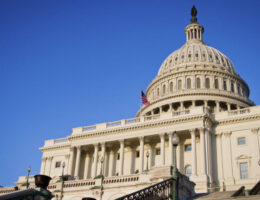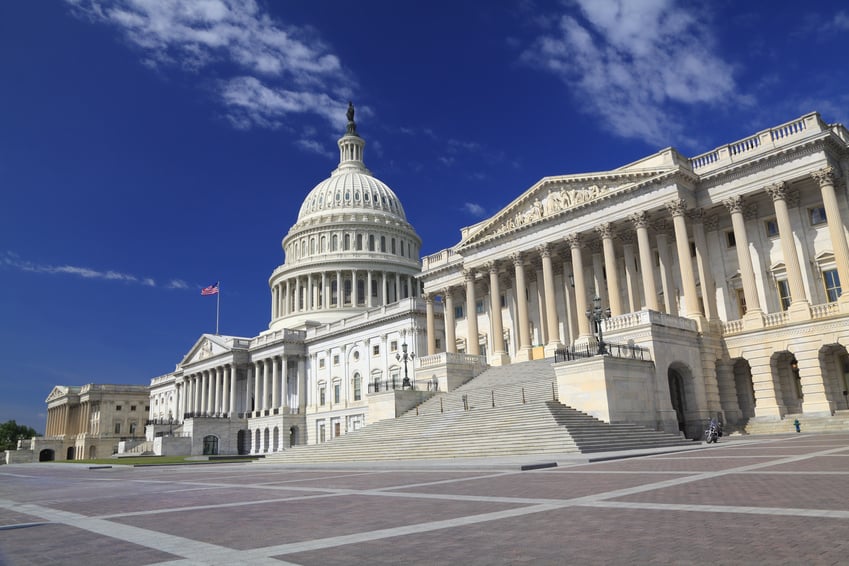The new premerger filing form and rules for complying with the Hart-Scott-Rodino Act (HSR Act) are now effective. While a legal challenge to the changes remains pending, any revisions or recissions by a federal court or the Trump Administration’s Federal Trade Commission or Antitrust Division leadership have not stopped today’s implementation.
As such, parties to all M&A transactions that require an HSR Act filing must use the new notification forms, which require the submission of substantially more information and documents. Parties should be prepared to spend additional time and to incur increased costs associated with HSR Act compliance.
The Federal Trade Commission has just announced its annual adjustment to the notification thresholds that determine whether proposed transactions may trigger a filing obligation under the Hart-Scott-Rodino (HSR) Antitrust Improvements Act of 1976, as amended. The corresponding adjustments to the HSR filing fee schedule also were included in the announcement. The adjusted notification thresholds and filing-fee schedule will apply to transactions that close on or after the effective date, which will be 30 days after publication in the Federal Register and no earlier than 12 February 2025.
The Federal Trade Commission brought its first gun-jumping action in decades against crude oil producers XCL Resources Holdings, LLC, Verdun Oil Company II LLC, and EP Energy LLC, imposing a civil penalty of USD 5.6 million. A “gun-jumping” violation occurs when a proposed buyer exerts control over the operations of the target business before the expiration of the relevant waiting period under the Hart-Scott-Rodino Act. This settlement represents the largest penalty ever imposed for a gun-jumping violation.
The Commissioners of the Federal Trade Commission (FTC) have voted unanimously to issue a final rule developed by both the Antitrust Division of the US Department of Justice and the FTC, updating the Premerger Notification Rules that implement the Hart Scott Rodino Antitrust Improvement Act (“HSR Act”), including substantial changes to the HSR Form.
A federal judge in Texas recently issued a nationwide injunction against the Federal Trade Commission’s rule banning most employee noncompetes. The injunction relieves employers from having to comply with the rule, meaning that employers can maintain noncompete agreements they have in place with employees. The FTC issued a statement indicating that it is considering its appeal options to remove the injunction, and noted that it remains able and willing to challenge the legality of noncompetes on a case-by-case basis, which was never in dispute.
A federal judge in the Northern District of Texas has granted a preliminary injunction that partially enjoins the Federal Trade Commission’s (FTC) final rule on noncompete covenants. In sum, the judge found that “the Commission has exceeded its statutory authority in promulgating the noncompete rule” and noted that the “role of an administrative agency is to do as told by Congress, not to do what the agency thinks it should do”. Most notably, the court determined that the plaintiffs are likely to succeed on the merits of their challenge to the rule because the FTC lacks substantive rulemaking authority.
The US District Court for the Southern District of Texas has granted a motion to dismiss the FTC’s lawsuit filed by private equity firm Welsh, Carson, Anderson & Stowe (WCAS), but denied the motion to dismiss filed by its minority-owned portfolio company, US Anesthesiology Partners, Inc. (USAP). The FTC alleged that WCAS and USAP developed and pursued an anticompetitive acquisition strategy to “roll-up” multiple Texas-based aesthesia practices in violation of federal antitrust law. The court granted WCAS’s motion to dismiss because it found that its minority, non-controlling stake in USAP was insufficient to support a violation of federal antitrust law.
The Federal Trade Commission (FTC) recently issued its highly anticipated final rule on noncompetes, imposing a near-total ban on worker noncompetes in the United States. Barring injunctive relief from legal challenges (which have already started), the rule will take effect 120 days from publication in the federal register.
The Federal Trade Commission has just announced its annual adjustment to the notification thresholds that determine whether proposed transactions may trigger a filing obligation under the Hart-Scott-Rodino (HSR) Antitrust Improvements Act of 1976, as amended. The corresponding adjustments to the HSR filing fee schedule also were included in the announcement. The adjusted notification thresholds and filing-fee schedule will apply to transactions that close on or after the effective date, which will be 30 days after publication in the Federal Register and no earlier than 26 February 2024.
On 18 December 2023, the Antitrust Division of the US Department of Justice (DOJ) and the Federal Trade Commission (FTC) jointly issued their highly anticipated final version of the 2023 Merger Guidelines . The issuance of the Guidelines follows the agencies’ release of draft guidelines in July and the conclusion of a public notice-and-comment period. The Guidelines set out how the agencies assess whether mergers and acquisitions threaten anticompetitive harm in violation of US antitrust laws.
Most notably, the newly issued Guidelines retained the lower thresholds for establishing presumptions of anticompetitive harm — including if the merger gives the combined firm more than 30% market share. Additionally, the Guidelines outline a holistic approach for analyzing vertical mergers.






